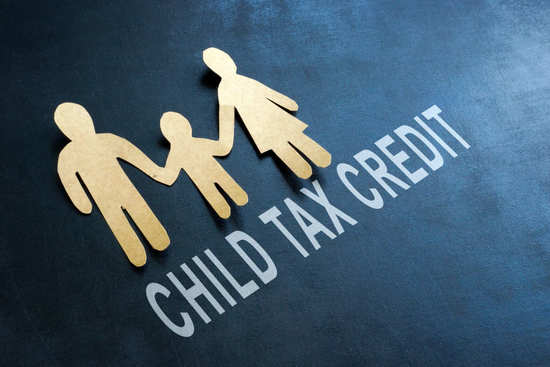
The pandemic has wreaked havoc with many family’s finances. To help with this, the federal government has made it much easier for many parents to take advantage of the child tax credit and advance child tax credit. But, as with anything concerning your taxes and the IRS, there are various guidelines you must follow to ensure your information is correct, and so that you get the tax credit you expect. To help guide you through this process, we have compiled some of the most common questions and answers pertaining to this important topic.
What are Advance Child Tax Credit Payments?
These payments, which will actually be early payments from the IRS, are for 50 percent of the estimated amount of the child tax credit you are allowed to claim on your 2021 tax return, which of course would be filed during the 2022 tax season. If your 2019 or 2020 tax returns have already been processed by the IRS, these advance payments would be made on a monthly basis through December 2021.
Do I Need to do Anything Special to Receive this Credit?
In most cases, you will not need to do anything special to receive the advance child tax credit, as long as the IRS considers you to be eligible for these payments based on your 2019 or 2020 tax returns.
Do I Need to be Earning Income to Receive this Credit?
To be eligible to receive the advance child tax credit payments, you will not be required to have an income. Thus, even if your income is zero, you should be eligible to take advantage of this tax credit.
Who is a "Qualifying Child" for this Tax Credit?
Under IRS guidelines for the 2021 tax year, a qualifying child will be any person who does not turn 18 years old prior to January 1, 2022. In addition, they must satisfy other conditions. The most common include not providing more than 50% of their financial support during 2021, living in the same household as the taxpayer for at least 50% of tax year 2021, and being legally recognized as being the taxpayer's biological son or daughter, stepchild, brother or sister, eligible foster child, or various other relations.
Are Social Security Numbers Required to Receive this Credit?
To receive the advance child tax credit, you and your spouse must have either a Social Security Number or an Individual Taxpayer Identification Number from the IRS. Also, remember that these tax credit payments will be made for each qualifying child who has a Social Security Number considered to be valid for U.S. employment.
How Do I Know if a SSN is Valid for Employment?
For a qualifying child to have a SSN that is considered to be valid for U.S. employment, it must have been issued to them by the Social Security Administration prior to the due date of your 2021 tax return, which does include any extensions. In situations where a person may have a Social Security card that contains the phrase "Not Valid for Employment" but has an immigration status that has changed so that they are now either a U.S. citizen or permanent resident, it is imperative you contact the SSA and request an updated Social Security card. Otherwise, the person's eligibility status may be questioned by the IRS.
What is the 2021 Child Tax Credit Amount?
In the 2021 tax year, the Child Tax Credit has increased substantially. While previously it was $2,000 for each qualifying child, it has not increased to $3,000 for each child who is ages 6-17 at the end of 2021. Also, for children who are less than six years of age at the end of 2021, the amount is $3,600 per child.
Can the Amount I Receive Decrease Based on My 2021 Income?
Unfortunately, the answer to this question is yes. In fact, there are two different phaseouts, both of which are based on your modified adjusted gross income for 2021. The first phaseout will decrease the amount of the Child Tax Credit to only $2,000 per child, while the second phaseout may reduce the remaining Child Tax Credit to less than $2,000 per child. Since these phaseouts can be confusing, it is best to discuss your situation with an experienced CPA to learn how or if these phaseouts will apply to you and your family.
Will I Receive Lower Payments if I Owe Taxes from Previous Years?
While you may assume you are destined to receive lower payments from this tax credit if you owe taxes from previous years, the good news is that any taxes you still owe will not keep you from receiving what you are entitled to from the Child Tax Credit. However, should you receive a regular tax refund from your 2021 taxes, any Child Tax Credit amounts that still remain may be subject to being used to pay off state or federal tax debts, so keep this in mind.
What About Past-Due Child Support?
Should you or your spouse owe past-due child support, this will not offset any advance Child Tax Credit payments to which you are entitled.
Can My Payments be Subject to Garnishment?
Yes. Under federal law, these payments are not exempt from being garnished by non-federal creditors. Thus, private creditors as well as your local or state governments may take action to garnish the payments you receive.
What if I Have Not Filed Taxes in Previous Years?
Finally, if you have not filed taxes in the last few years but did enter information into the Non-Filer tool to be eligible for stimulus payments, the IRS will use this information to determine your eligibility. Should you qualify, you will be automatically enrolled for these tax credits.
Due to the many complexities associated with these tax credits, don't leave anything to chance. Instead, consult with your CPA as soon as possible.
